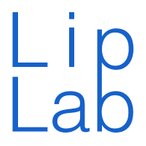Learning and Implicit Processes Lab
The Methusalem Project
The Methusalem research project is a large-scale research project on learning and implicit processes. We study different types of learning and study relational behavior and thinking.
Methusalem 3: Relational Thinking & Behavior
The Methusalem project is financed by the Flemish Government who initiated this type of financing in order to provide Flemish top researchers with structural, long term research funds. Jan De Houwer was awarded Methsualem finanicing in 2009. Afther the sucessful completion of the first period of seven years, in 2016, and the second period in 2022, the project was extended for a third period of seven years. The aim of the second period is to study relational thinking and behavior.
1. SStarting from the shared features principle, shed light on the inferences that people make under suboptimal conditions (i.e., when little relevant information is available) and use this to predict and influence learning and impression formation phenomena both inside and outside the laboratory
Core publication:
Hughes, S., De Houwer, J., Mattavelli, S., & Hussey, I. (2020). The Shared Features Principle: If two objects share a feature, people assume those objects also share other features. Journal of Experimental Psychology: General, 149, 2264–2288.
2. Determine whether SMART is an effective way to strengthen relational thinking and behavior in a variety of populations on a variety of outcome variables
Cummins, J., Nevejans, M., Colbert, D., & De Houwer, J. (2023). On the structure of relational responding. JOURNAL OF CONTEXTUAL BEHAVIORAL SCIENCE, 27, 16–25. https://doi.org/10.1016/j.jcbs.2022.11.006
3.dDevelop and deploy novel methods for studying how relational contextual cues acquire and exert their impact on relational thinking and behavior, and use this to develop novel methods for assessing and training the flexible use of relational contextual cues
Core publication: Finn, M., & De Houwer, J. (2021). The selective action of cfunc control. Journal of the Experimental Analysis of Behavior, 116, 314–331.
4. Continue to apply the functional-cognitive framework within and outside of psychology, with a focus on learning in systems other than whole individual organisms (e.g., machines, genes, groups).
Core publication: De Houwer, J., & Hughes, S. (2023). Learning in individual organisms, genes, machines, and groups: A new way of defining and relating learning in different systems. Perspectives on Psychological Science, 18, 649-663. https://doi.org/10.1177/17456916221114886
Members
Director
Jan De Houwer
Board of Directors
Geert Crombez (UGent)
Ilse De Bourdeaudhuij (UGent)
Jan De Houwer (UGent)
Rudi De Raedt (UGent)
Wim Fias (UGent)
Dirk Hermans (KU Leuven)
Ernst Koster (UGent)
Gilles Pourtois (UGent)
Pieter Van Dessel (UGent)
Current Postdoctoral Researchers
Yannick Boddez
Martin Finn
Alejandro Macias
International Advisory Board
Mahzarin Banaji (Harvard)
Marcel Brass (Humboldt University)
Peter de Jong (University of Groningen)
Wim De Neys (Paris Descartes)
Marco Perugini (University of Milan-Bicocca)
Bertram Gawronski (University of Texas at Austin) Brian Roche (Maynooth University)
Current PhD Students
Zita Meijer


